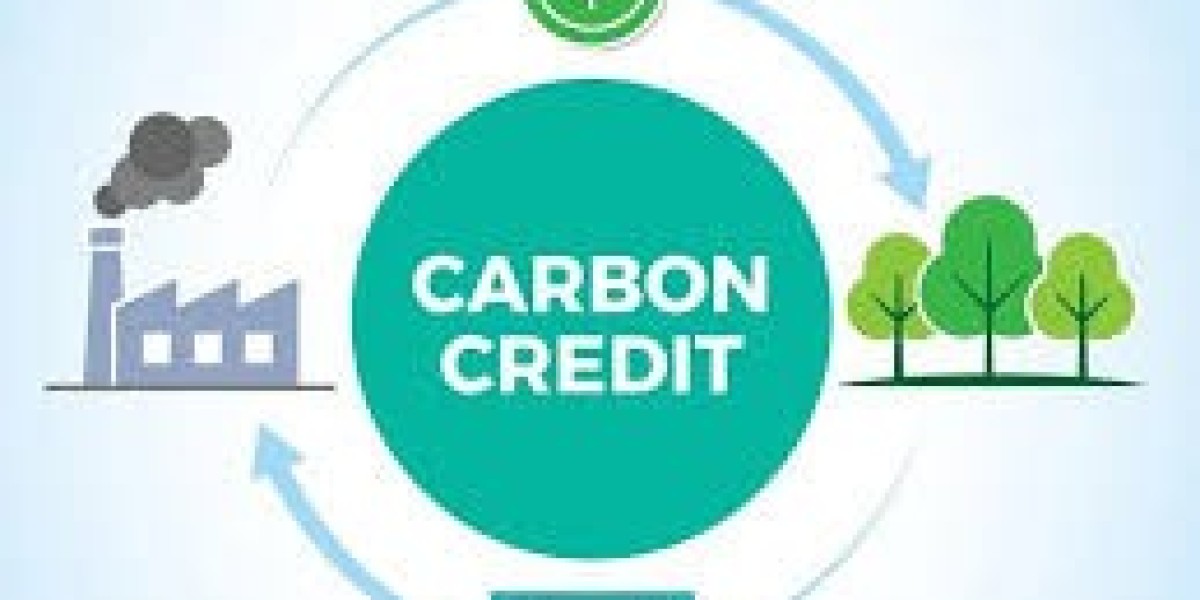In the fight against climate change, carbon credit exchanges play a crucial role in facilitating the trade of carbon credits and offsetting emissions. At the heart of these exchanges lies the concept of carbon offsets, which are integral to how businesses, governments, and individuals can offset their carbon footprints. Carbon offsets represent a method of compensating for carbon dioxide (CO2) emissions by investing in projects that reduce or remove an equivalent amount of CO2 from the atmosphere. Within a carbon credit exchange, offsets allow for the buying and selling of credits generated through various carbon-reducing initiatives. Platforms like Carbon.Credit are leading the way by providing the infrastructure and technology needed to scale these exchanges, making it easier for participants to contribute to environmental sustainability while achieving their emissions reduction targets.
Carbon Offsets and Their Function in the Carbon Credit Exchange
Carbon offsets are generated by projects that contribute to environmental sustainability, such as reforestation, renewable energy projects, or carbon capture and storage initiatives. Each offset represents a ton of CO2 that has been either avoided or removed from the atmosphere. These offsets are then converted into carbon credits, which can be traded on a carbon credit exchange.
The role of offsets in a carbon credit exchange is to act as a mechanism for companies and other entities to mitigate their environmental impact. By purchasing carbon credits, buyers can effectively "neutralize" their emissions by supporting projects that reduce or capture an equivalent amount of CO2. This helps promote a market-driven approach to climate action, where businesses are financially incentivized to offset their emissions rather than simply reducing them internally.
Carbon.Credit, for example, provides a platform where carbon credits, energy contracts, and other asset-backed securities can be traded. Through its innovative solutions, Carbon.Credit enhances the liquidity of these markets by consolidating thousands of illiquid, bespoke assets into liquid markets. This feature allows buyers and sellers to efficiently trade carbon credits, making it easier for businesses to meet their sustainability goals while simultaneously providing funding for environmental projects.
The Impact of Carbon Offsets on Global Emissions Reduction
The widespread use of carbon offsets in carbon credit exchangeis essential for achieving global emissions reduction targets. Offsets provide a flexible mechanism for companies to balance their emissions while supporting projects that directly contribute to reducing carbon footprints. For example, through the purchase of carbon credits from renewable energy projects or forest conservation efforts, companies can help fund initiatives that might otherwise lack the necessary resources.
The inclusion of carbon offsets in exchanges like Carbon.Credit enables a more diversified approach to environmental protection, as it integrates different types of offset projects, including those focused on renewable energy and carbon sequestration. This variety in offset projects ensures that carbon credit exchanges can play a pivotal role in scaling efforts to combat climate change. Furthermore, it allows businesses to choose projects that align with their corporate sustainability values, whether they are interested in supporting clean energy initiatives or reforestation programs.
Innovation and Special Products: Clean Bitcoin Offset as Ordinal NFT
One of the unique innovations in the carbon credit exchange space is Carbon.Credit's introduction of the Clean Bitcoin Ordinal Offset. This product represents a novel approach to combining carbon offsetting with the growing digital currency market. Through the issuance of Bitcoin offsets, Carbon.Credit mints Clean Bitcoin offsets as Ordinal NFTs, enabling participants in the cryptocurrency ecosystem to offset the carbon emissions generated by Bitcoin mining.
This innovation exemplifies how offsets can play a role in diverse industries, from traditional energy to emerging sectors like cryptocurrency. By incorporating offsets into the carbon credit exchange in this manner, Carbon.Credit bridges the gap between digital finance and environmental sustainability. It allows businesses and individuals in the cryptocurrency market to offset their emissions while simultaneously engaging in the growing market of non-fungible tokens (NFTs), contributing to both environmental goals and the digital economy.
Supporting Developers and Funding Carbon-Related Projects
For developers of carbon sequestration and renewable energy projects, carbon credit exchanges offer a critical avenue for securing the funding necessary to scale their initiatives. Carbon.Credit supports the development, capitalization, and funding of carbon-related projects by facilitating the creation of carbon credits through the sale of offsets. The exchange provides price discovery, liquidity, and transparency, enabling developers to accurately value their projects and attract investors.
By creating a transparent and accessible platform for carbon credits and offsets, Carbon.Credit helps ensure that these projects receive the funding they need to succeed. The liquidity provided by the exchange makes it easier for developers to sell their carbon credits and generate income, which can be reinvested into their projects or used to fund new initiatives. This, in turn, accelerates the growth of the carbon credit market and enhances its overall effectiveness in reducing global emissions.
Conclusion
Offsets play a vital role in the carbon credit exchange by providing a means for businesses, governments, and individuals to compensate for their carbon emissions. Through the purchase of carbon credits, entities can support projects that reduce or remove CO2 from the atmosphere, driving environmental sustainability. Platforms like Carbon.Credit are instrumental in facilitating these exchanges by offering a liquid market for carbon credits and offsets, thus making it easier to invest in carbon-reducing projects.
Additionally, innovations such as Carbon.Credit’s Clean Bitcoin Ordinal Offset highlight the potential of offsets to address emissions in emerging industries, further broadening the scope and impact of the carbon credit exchange. As more participants engage with these exchanges, offsets will continue to play a crucial role in the global effort to mitigate climate change, helping to build a more sustainable future for all.



